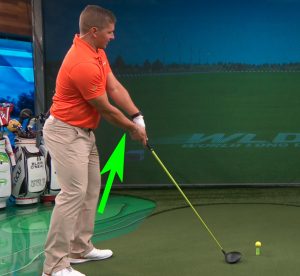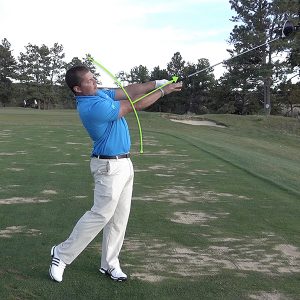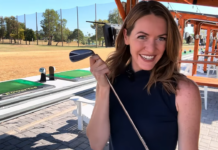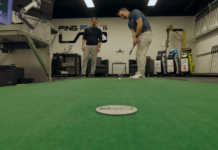As seen on Golf Channel: World Long Drive competitor Brad Skupaka shares tips on how to gain more distance
If you’re like us, watching World Long Drive competitions leaves you in complete awe. The amount of sheer power these golfers exert during one swing can stir up envy for the rest of us that struggle with the big stick.
Luckily for us at GOLFTEC Headquarters, we just head down the hall and ask resident long driver, Director of Teaching Quality, Brad Skupaka, for advice. Skupaka, after all, is no stranger to the WLD scene after qualifying for the finals for the fifth time this summer.
Punched my ticket to @WorldLongDrive finals for the 5th time. Thanks to @GOLFTEC @PADERSON_SHAFTS @SwingEvolution for the support. pic.twitter.com/DMRZFfNncg
— Brad Skupaka (@BradSkupakaPGA) August 2, 2018
But for the rest of you distance-yearning golfers out there, it can be a frustrating endeavor to add yardage when seemingly everything you try to do yields little to no improvement.
Aside from getting your swing measured at your local GOLFTEC – the best advice we can give to help your game – Skupaka’s distance tips during a recent appearance on Golf Channel’s ‘School of Golf’ can help you finally start hitting those drives out of your own shadow.
It’s all in the wrists … and upper body
Many people think long drive competitors step up to the ball and just whack at it as hard as they can, without thinking much about the swing itself.
Obviously, they’re swinging EXTREMELY hard to be able to hit the ball 400-plus yards. But two key areas in the swing that long drivers have in common, Skupaka says, are crucial to sending the ball miles down the fairway.

1. Ulnar deviation of the wrists. The vertical unhinging of the wrists in the downswing, ulnar deviation plays a big part in bombing the big stick. The longest drivers exhibit more of this in their wrists at impact than the shortest drivers.
If you’re one who struggles with distance, it can help to exhibit more ulnar deviation of your wrists at impact.
One way you can encourage this is to “pre-set” your wrists at address, like Skupaka does in the image above with the green showing his hands have moved more upward and toward the target than in a typical setup position.

2. Aiming your chest upward in the follow-through. Aside from the slight change at address, aiming your chest more upward, or toward the sky, in the follow-through will help maintain the ideal wrist positions and create a more upward angle of attack.
The shortest hitters often do the opposite – bend down toward the ground in the follow-through – which encourages “cupped” wrists (radial deviation) and a high amount of spin loft. Neither are good for long, straight drives.
By bending backward through impact into the follow-through, it’s much easier to keep the arms extended and wrists in a more ideal position as you hit the ball.
Ultimately, the combination of ideal wrist positions at impact and backward bend in the follow-through are the perfect recipe for consistently bombed drives.










